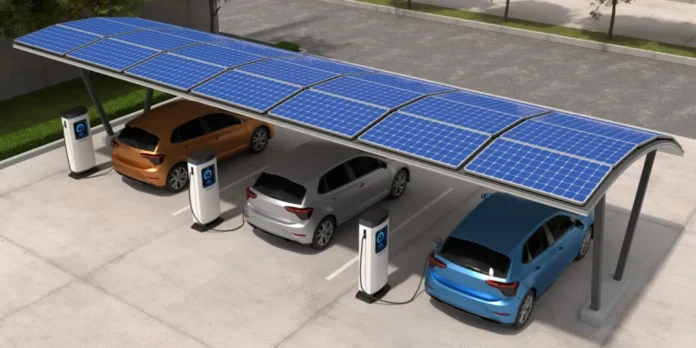How Technology Is Helping The Transportation Industry Become Greener
Technology is playing a pivotal role in transforming the transportation industry into a greener and more sustainable sector. By leveraging innovative technologies, the transportation industry is reducing its environmental footprint, enhancing efficiency, and promoting sustainability. Here are some of the key technologies driving this transformation:
Electric Vehicles (EVs)
Electric vehicles (EVs) are leading the transition to more environmentally friendly transportation. By substituting electric motors for internal combustion engines, EVs eliminate tailpipe emissions, greatly diminishing air pollution. Furthermore, enhancements in battery technology have extended their driving range and decreased the time needed for charging, making EVs more suitable for daily commuting and extended journeys.
Hydrogen Fuel Cells
Hydrogen fuel cell vehicles, which convert hydrogen into electricity, produce only water as a byproduct, offering another pollution-free alternative to traditional fuels. Although the infrastructure for hydrogen fuel is still in development, its potential for heavy transportation modes like trucks and buses is immense, given their long range and quick refueling capabilities.
Autonomous and Connected Vehicles
Self-driving and connected vehicle technologies are poised to make transportation safer and more efficient. Autonomous vehicles can optimize driving patterns and reduce traffic congestion, leading to lower fuel consumption and emissions. Moreover, connected vehicle technology enables cars and trucks to communicate with each other and with traffic management systems, enhancing the flow of traffic and reducing idle time.
Alternative Fuels
Beyond electricity and hydrogen, the transportation industry is exploring other alternative fuels like biofuels and synthetic fuels. These fuels are designed to be used in existing vehicle technologies but are produced from renewable sources, thus reducing dependency on fossil fuels and minimizing carbon emissions.
Load Boards and Freight Matching
Digital load boards like www.shiply.com and freight matching platforms are essential technologies that help to reduce empty runs in trucking. These platforms enable real-time matching of freight with carriers that have available capacity, ensuring that trucks are more likely to travel with full loads. This optimizes logistics, improves fuel efficiency, and reduces emissions by decreasing the number of unnecessary trips and idle trucks.
Mobility as a Service (MaaS)
MaaS platforms integrate various forms of transport services into a single accessible on-demand service. By combining options like car-sharing, bike-sharing, and public transport, MaaS encourages people to opt for more sustainable travel choices, reducing the reliance on private vehicle ownership and consequently reducing carbon emissions.
Advanced Materials
The development of lighter and stronger materials for vehicle construction, such as carbon fiber and advanced plastics, helps to reduce the weight of vehicles. This, in turn, leads to improved fuel efficiency and reduced emissions, particularly in large vehicles like trucks and airplanes.
Smart Infrastructure
Intelligent transportation systems (ITS) use technology to optimize the management and operation of transport networks. Smart traffic lights and sensors can reduce idle times and improve traffic flow, thereby reducing fuel consumption and emissions. Additionally, investments in smart infrastructure support the integration of renewable energy sources, like solar-powered charging stations, further promoting green transportation.
Energy-efficient Public Transport
Advances in technology are also enhancing the efficiency and appeal of public transport. Modern electric and hybrid buses, light rail systems, and subways are becoming more prevalent and are crucial for reducing congestion and pollution in urban areas.
As technology continues to evolve, its integration into the transportation industry holds significant promise for making transportation not only more efficient but also more sustainable. The ongoing investment in research and the implementation of technology-driven solutions are key to achieving a greener transportation future, benefiting both the environment and society as a whole.
